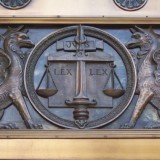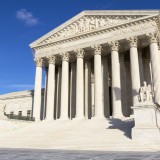Expungements in Louisiana
Criminal convictions, and arrests that do not result in conviction, have many collateral consequences and few things create barriers to obtaining a good job like a criminal record.A record of arrest or conviction that is expunged in Louisiana is not destroyed. It becomes confidential, but remains available for use by law enforcement agencies, criminal justice agencies, and other statutorily defined agencies.In 2014, the Louisiana Legislature recognized that “the inability to obtain an expungement can prevent certain individuals from obtaining gainful employment.” Louisiana. Code of Criminal Procedure Article 971(4). As a result, the Legislature enacted a series of revised and consolidated expungement statutes under Title XXXIV of the Criminal Code allowing for expungement of a broad range of both misdemeanors and felonies under certain circumstances.The Legislature’s stated intent is to “provide opportunities to break the cycle of criminal recidivism, increase public safety, and assist the growing population of criminal offenders reentering the community to establish a self-sustaining life through opportunities in employment.” Louisiana Code of Criminal Procedure Article 971(6).Records that may be expunged:Records of an arrest that did not result in a conviction:A person may file a motion to expunge a record of his arrest for a felony or misdemeanor offense that did not result in a conviction if any of the following apply:(1) The person was not prosecuted for the offense for which he was arrested, and the limitations on the institution of prosecution have barred the prosecution for that offense.(2) The district attorney for any reason declined to prosecute any offense arising out of that arrest.(3) Prosecution was instituted and such proceedings have been finally disposed of by dismissal, sustaining of a motion to quash, or acquittal.Louisiana Code of Criminal Procedure Article 976A.Records of an arrest and conviction of a misdemeanor offense:A person may file a motion to expunge his record of arrest and conviction of a misdemeanor offense if either of the following apply:(1) The conviction was set aside and the prosecution was dismissed pursuant to Article 894(B) of this Code.(2) More than 5 years have elapsed since the person completed any sentence, deferred adjudication, or period of probation or parole, and the person has not been convicted of any felony offense during the 5-year period, and has no felony charge pending against him.Louisiana Code of Criminal Procedure Article 977A.Records of an arrest and conviction of a felony offense:A person may file a motion to expunge his record of arrest and conviction of a felony offense if either of the following apply:(1) The conviction was set aside and the prosecution was dismissed pursuant to Article 893(E) of this Code.(2) More than 10 years have elapsed since the person completed any sentence, deferred adjudication, or period of probation or parole based on the felony conviction, and the person has not been convicted of any other criminal offense during the 10-year period, and has no criminal charge pending against him.Louisiana Code of Criminal Procedure Article 978A.Any person who was convicted of carnal knowledge of a juvenile (R.S. 14:80) prior to August 15, 2001, is eligible for an expungement pursuant to the provisions of this Title if the offense for which the offender was convicted would be defined as misdemeanor carnal knowledge of a juvenile (R.S. 14:80.1) had the offender been convicted on or after August 15, 2001.Louisiana Code of Criminal Procedure Article 978B(2)(b).Records of an arrest for a felony when conviction is for a misdemeanor:A person may file an interim motion to expunge a felony arrest from his criminal history when that original arrest results in a conviction for a misdemeanor. In such cases, only the felony arrest may be...
read moreMission, Vision & Tactics
The VisionTo be the Premier Law Firm in our community for defending the lives, liberty and property of the people that seek our help.The MissionAlways work to make a positive difference in out Client’s lives.The TacticsEngage with, listen to, and believe in our clients. Understand their needs and goals. Fight inside and outside the courtroom to obtain the best outcome for our...
read moreAre We The Right Lawyers for You?
It depends. We are committed to providing quality, personal representation. So we don’t accept every case. And while we cannot promise any given outcome, we believe our work can, and should make a positive difference in our clients’ lives. The only way to really know whether we are the right lawyers for you is for you to talk to us. Click Here to find out about setting up a consultation. Call 318-227-1460 to arrange for a confidential consultation with one of our...
read moreJoin Our Team
If people like John Adams, Clarence Darrow, Earl Warren, Thurgood Marshall, Sandra Day O’Connor, and Sonia Sotomayor inspire you, . . . . Then we might need to talk. Explore our Team
read moreNew Law Creates Crime of “Nonconsensual Disclosure of Private Image”
One of the most important legislative updates from the 2015 session in Louisiana is the creation of La. R.S. 14:283.2, which defines and punishes “nonconsensual disclosure of a private image.” As a result of this legislation, it is a felony for a person to “intentionally disclose an image of another person who is seventeen years of age or older, who is identifiable from the image or information displayed in connection with the image, and whose intimate parts are exposed in whole or in part.” Additionally, the person doing the disclosing has to have gotten it under circumstances under which a reasonable person would understand that the image was supposed to remain private, and that person knew or should have known that the person in the image did not consent to the disclosure of the image. Finally, the person who discloses the image must have the intent to harass or cause emotional distress to the person in the image. Now the legislature did of course write in exceptions for criminal justice agencies, and for when the person voluntarily or knowingly exposed themselves in public, or when such images are “related to a matter of public interest, public concern,” etc. What is the punishment for this crime? As I mentioned above, it is a felony, and it is punishable by up to two years in prison, a fine of up to $10,000 or both. And finally, how does this affect you? Well, we now live in a world in which “sexting” is very prominent, and as a result there are more pictures floating around of people whose “intimate parts are exposed in whole or in part.” We hear plenty of stories of people who think a good way to get back at the person who broke their heart, embarrass the person who embarrassed them, or who otherwise experienced an unpleasant breakup think it would be funny to disclose pictures like this. Don’t do it! The legislature has now made the decision for us that this is NOT a good decision, and could result in very serious consequences. If you are arrested for this or contacted by a detective regarding a crime of this or a similar nature, you need to seek legal...
read more



